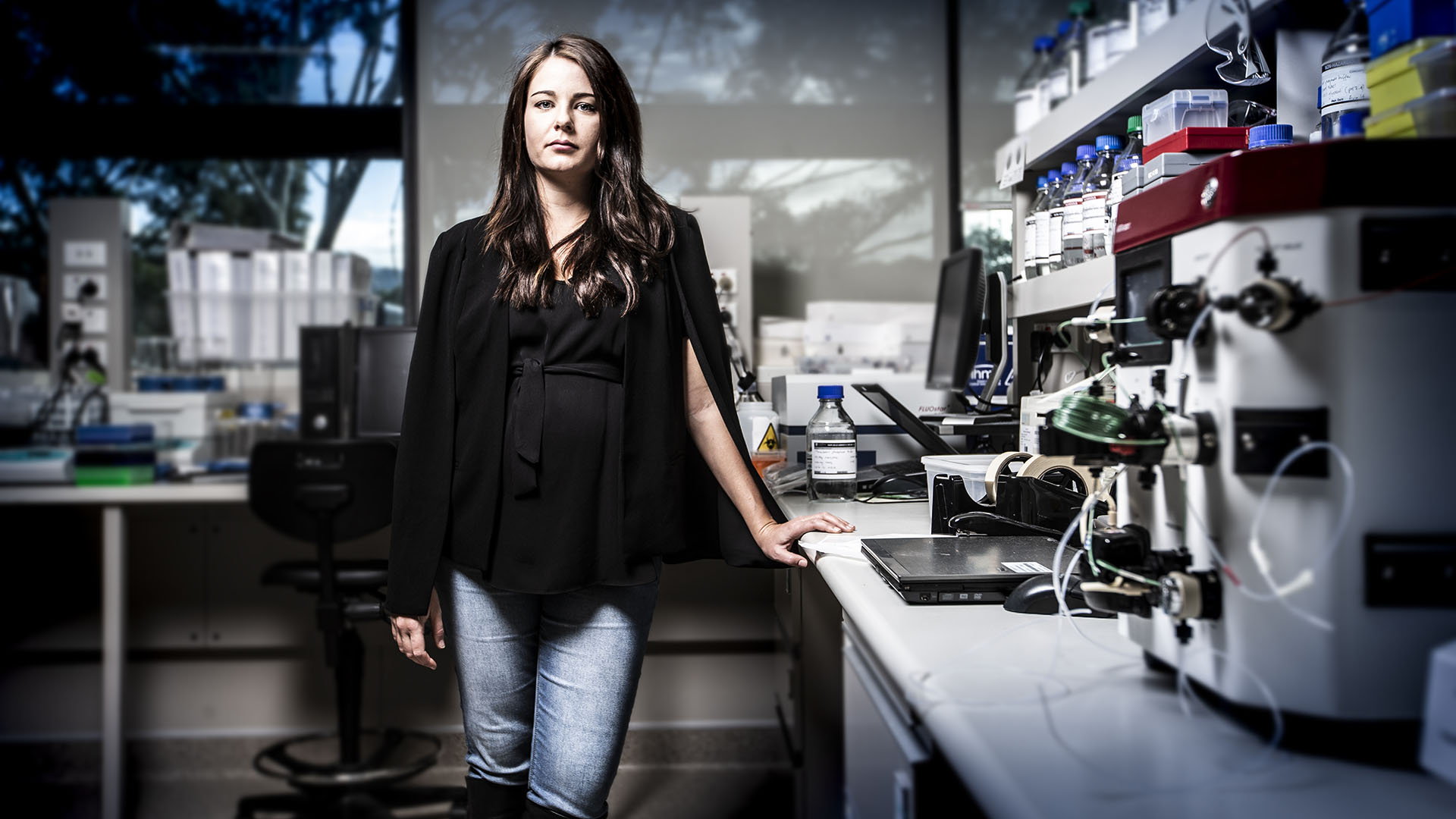Research focuses on impacts of stress on brain cells and molecules, and what role this plays in future mental illness

Dr Natalie Matosin from the Illawarra Health and Medical Research Institute (IHMRI) and UOW's School of Chemistry and Molecular Bioscience, has been awarded the prestigious Al & Val Rosenstrauss Fellowship from the Rebecca L Cooper Medical Research Foundation.
The four-year mid-career fellowships are awarded to researchers who are thre-to-10 years post-doctorate, with the aim to provide salary support for rising stars who are building credentials for a long career in research.
The funding will propel Dr Matosin's research program and ensure her work can continue during a difficult time for funding in the medical research sector in Australia.
Dr Matosin's research group focuses on the impacts of stress on brain cells and molecules, and what role this plays in causing future mental illness.
Her recently published work in the Neurobiology of Stress journal already suggests that exposure to severe stress, particularly if experienced in childhood, can cause long-lasting changes to the physical shapes of brain cells and how they connect in those with severe mental illnesses like depression, bipolar disorder and schizophrenia.
The Al and Val Rosenstrauss Fellowship will now enable Dr Matosin to expand on this work, by studying how not only brain cells, but the molecules that comprise them, are affected by stress at an unprecedented, individual-cell resolution.
The project will draw on Dr Matosin's international post-doctoral training, with cutting-edge and state of the art experimental methods learnt during her preceding years of training at the Max Planck Institute of Psychiatry in Germany, which was supported by an Australian National Health and Medical Research Council's CJ Martin Fellowship.
Through her research, Dr Matosin hopes to understand the mechanisms of how stress contributes to the development of mental illness in the hope of finding ways to reverse or prevent these effects with new therapeutics.
This is the second year Dr Matosin's research has been acknowledged by the Rebecca L Cooper Medical Research Foundation. The Fellowship follows on from Project Grant success last year, where her submission was ranked top in its year out of all applications. As a result of this, she went on to receive both the Rebecca L. Cooper Memorial and Brain Science Award as recognition for her work.
"I am super excited to be able to undertake this research and thankful to have the support of the Foundation on multiple fronts. I'm looking forward to the times ahead for my lab and the discoveries yet to be made," she added.






